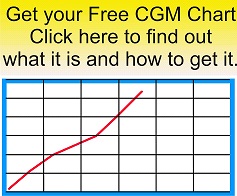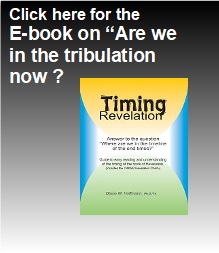Article from Timing Revelation and More,
"Is the word "know" in John 14:4 the same as "know" in the Genesis 4:1"?
Is the word "know" in John 14:4 the same as "know" in the Genesis 4:1?
By Diane M. Hoffmann, B.Th., M.Th., PhD/Th., Ord./IAOG-Canada
Another article provided by Timing Revelation & more...
Here's something that I just heard on one popular program on a large Christian television network.. And I say this with respect, I love the work this brother does and admire his great accomplishments... etc...
...however, when it comes to the Word of God, and I hear something theologically misinterpreted, I can't help but note it and put it out there for correction. And that, not because I know more or better than anyone else, but simply because it's wrong -- however small it might be or seem to be -- and it needs to be pointed out and hopefully corrected in the ears of the hearers.

Now here's the issue today...
Just a couple of days ago in one of his television teachings this preacher/teacher said that the word "know" in John 14:4 means "to know in an intimate sense relationship as to produce a child, as in Geneses 4:1, "And Adam knew Eve his wife: and she conceived...".
... and to me, I find this frustrating that an international preacher/teacher of the word of God would teach the Bible in such a total outside-of-context of scripture.
So when I heard this, I did what I always do when I hear something that doesn't sound right, and went to the Word of God to check it out.
John 14:4
To make a long case study short, the word "know" in John 14:4, "And whither (where) I go ye know, and the way ye know.", (Jesus speaking to His disciples about the way to the Father), is the Greek word "eidō" (Strong G1492) (pronounced 'i-dough') which means the following:
"to see, to perceive with the eyes, to perceive by any of the senses, to perceive, notice, discern, discover, i.e. to turn the eyes, the mind, the attention to anything
"to pay attention, observe, to see about something, i.e. to ascertain what must be done about it
"to inspect, examine, to look at, to behold, to experience any state or condition, to see i.e. have an interview with, to visit
"to know, to know of anything, to know, i.e. get knowledge of, understand, perceive, of any fact, the force and meaning of something which has definite meaning, to know how, to be skilled in, to have regard for one, cherish, to pay attention to..."
(https://www.blueletterbible.org/lexicon/g1492/kjv/tr/0-4/#lexResults).
Now you might think 'that's a lot of words'. Yes but... what it means is that this word "eidō" has been translated throughout the New Testament in these variations according to the context of the passage of scripture or topic of conversation.
Genesis 3:7
In the same way, the Hebrew word "knew" in Genesis 4:1, "And the eyes of them both were opened, and they knew that they were naked", (speaking of them recognizing or distinguishing who they were as male and female) is "yāḏaʿ" (Strong H3045), which means:
"1. (Qal)"... to know, learn to know, to perceive, to perceive and see, find out and discern, to discriminate, distinguish, to know by experience, to recognize, admit, acknowledge, confess, to consider, to know, be acquainted with, to know (a person carnally), to know how, be skilful in, to have knowledge, be wise,
"2. (Niphal)... to be made known, be or become known, be revealed, to make oneself known, to be perceived, to be instructed,
"3. (Piel)... to cause to know,
"4. (Poal)... to cause to know,
"5. (Pual)... to be known, known, one known, acquaintance (participle)
"6. (Hiphil)... to make known, declare,
"7. (Hophal)... to be made known,
"8. (Hithpael)... to make oneself known, reveal oneself."
And also in the same way as the Greek word, this Hebrew word "yāḏaʿ" has been translated throughout the Old Testament in these variations according to the context of the passage of scripture or topic of conversation.
(For your information I have added the meaning of the Hebrew explanation in bracket above: Qal (simple action); Niphal (effectively passive); Piel (emphatic form); Poal (same as Pual except for the 3rd person masculine singular); Pual (passive participle); Hiphil (causative action); Hophal (passive form of Hiphil stem); Hithpael (reflextive).
Here in Genesis 4:1, the word "know" or "they knew" that they were naked, would be "they figured it out", "they realized", as in Genesis 8:11 where the same word is used, "And the dove came in to him in the evening; and, lo, in her mouth was an olive leaf pluckt off: so Noah knew (H3045--yāḏaʿ) that the waters were abated from off the earth.
The word "know" in John 14:4 does not mean the same as the word "knew" in Genesis 4:1
Each of these two scriptures have totally different meanings. An interpretation and/or translation of each of those scriptures would be used to fit the context and topic of each the particular descriptive reading.
How can anyone say both scriptures are the same words? Really. Of course not. What kind of teaching is this?
Jesus speaking to His disciples about the way to the Father)
Anyone who saw the program and didn't see/notice and check out this error was left with that teaching in their mind and thought processes for the rest of their Christian life --unless they've been "corrected".
The reason why I said above that I find this to be outrageous is because there are hundreds of these types of errors out there, every day, in the Christian realm that are being spread around by erroneous, poor, inadequate and careless "teaching" to the unsuspected "sheep".
You can imagine why the Church is anemic in spiritual understanding. This kind of preaching that John 14:4 and Genesis 4:1 means the same, coming from Church "leaders" is damaging and devasting to the body of Christ.
\DMH
click on the graphic to share your thoughts...
or
Back to portal for theological articles
Click on the graphic to go to Christianbook affiliate store products

or click on the following link to go directly to the page on
ApologeticsP.S.: For your information I am a participant of the Christianbook affiliate program and as such will receive a small commission on purchases made by my readers. I want to thank you for buying your Christian products through here... all of this helps me with the expenses of providing this important ministry and operating this web site.
Blessings,



